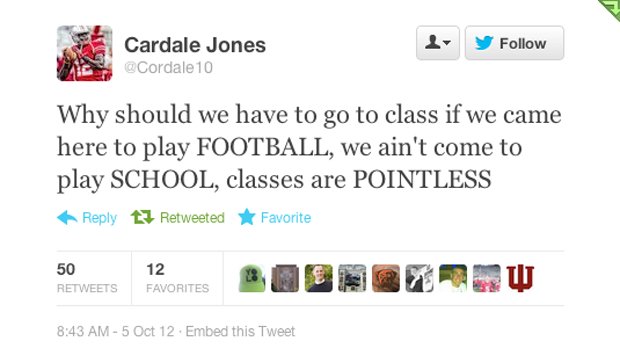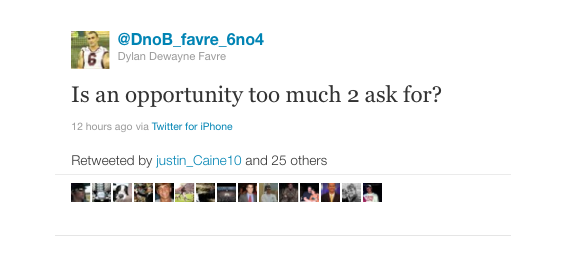A quarterback can’t hesitate. A stutter step or a pass just a fraction of a second too late can be the difference between an interception and a touchdown. However, this quick-thinking attitude does not mix so well with social media. In fact, the public has readily thrown up yellow flags as athletes over-share on social media. Thus, in the spirit of football season, we have compiled some examples of quarterbacks who, despite their ability to score touchdowns on the field, could be sacked for questionable Tweets that tarnish their reputations. And here’s the kicker: each of these Tweets were deleted, but live on in infamy.
Few would refute that Johnny Manziel, the first ever freshman Heisman Trophy winner, is one the best at thinking on his feet. His arm is fire-ready, and he is quick to make the right calls. To be clear, Manziel has never posted anything illegal. However, he has Tweeted a variety of photos that include him flashing money and gambling – certainly not the type of activities for which he wants to be known.
A backup quarterback for the Ohio State Buckeyes, Cardale Jones came under intense fire for Tweeting that classes were “pointless.” Expressing his belief that he wasn’t a student-athlete, but just an athlete, Jones poured salt on the wounds of NCAA sanctions on the Ohio State football team. And, this certainly wasn’t how Ohio State wanted to be perceived.
Dylan Farve, the former backup quarterback for Mississippi State, also took to Twitter to express his frustration. Tweeting “Is an opportunity too much 2 ask for?,” he publicly portrayed himself as aggravated and envious– certainly not representing a cohesive team. Expressing his anger on Twitter and undermining his coach thus probably was not the most appropriate plan of attack.
So, while quarterbacks need to be quick on their feet, they should think twice (or three times) about being quick with their tweets. Twitter is extremely public, and oftentimes it is not the right forum to express frustration or brag about extracurricular conquests. Inappropriately using Twitter damages an athlete’s status as a role model and ultimately distracts from the gridiron. Plus, just as a passed football can’t be reigned in after being sent down field, Tweets can’t be undone once published.




